
Key Takeaways
- The furnace heats up the air and circulates it through ducts, while a boiler heats up water and distributes it through ducts and vents.
- Boilers provide more consistent heating with better air quality, whereas furnaces heat up faster but can cause dry air.
- Furnaces have low upfront costs and are easier to install than boilers.
With the arrival of a cold winter comes the need for an effective heating system that cocoons your home with cozy warmth. Most homes in the US are equipped with either a furnace or boiler heater.
So, if you are looking to choose one of these two popular heating options for your home, you will have to consider multiple factors, such as installation costs, energy efficiency, maintenance, and environmental impacts.
This furnace vs. boiler blog explains how these central heating systems work, compares their performances and breaks down their key differences to help you determine the best option for your home.
What Is a Furnace?
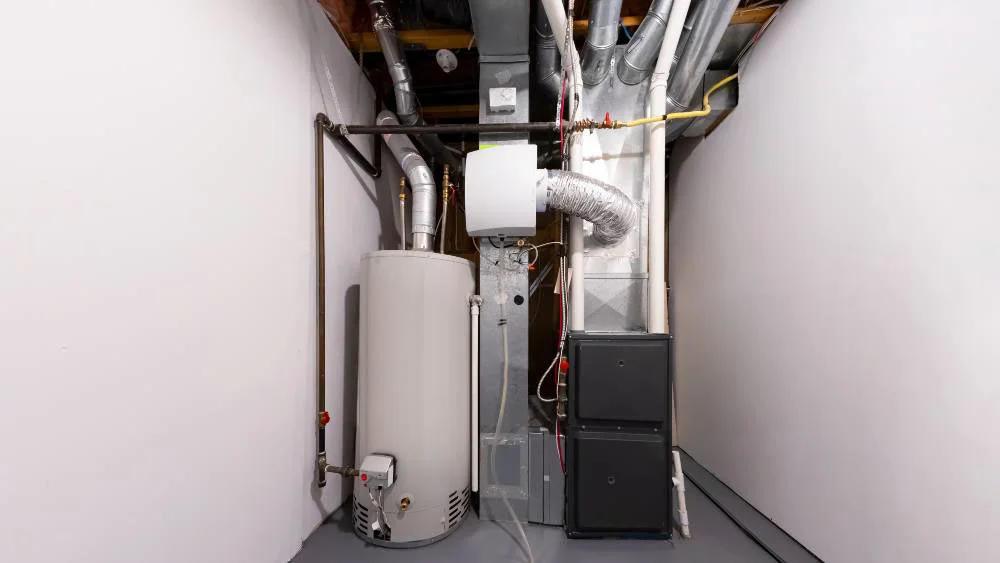
In the US, a furnace is the most common heating system. It generates heat using natural gas, oil, or electricity. The air is heated by burning fuel or using electricity, after which the blower blows the hot air around your home through a network of vents or ducts. Any harmful gases or smoke produced are expelled using a flue that operates as an exhaust.
The different types of furnaces are usually categorized by their fuel source. Thus, the market offers an array of gas furnaces, oil furnaces, and electric furnaces.
| Pros | Cons |
|
|
|
|
|
|
|
|
|
|
|
What Is a Boiler?
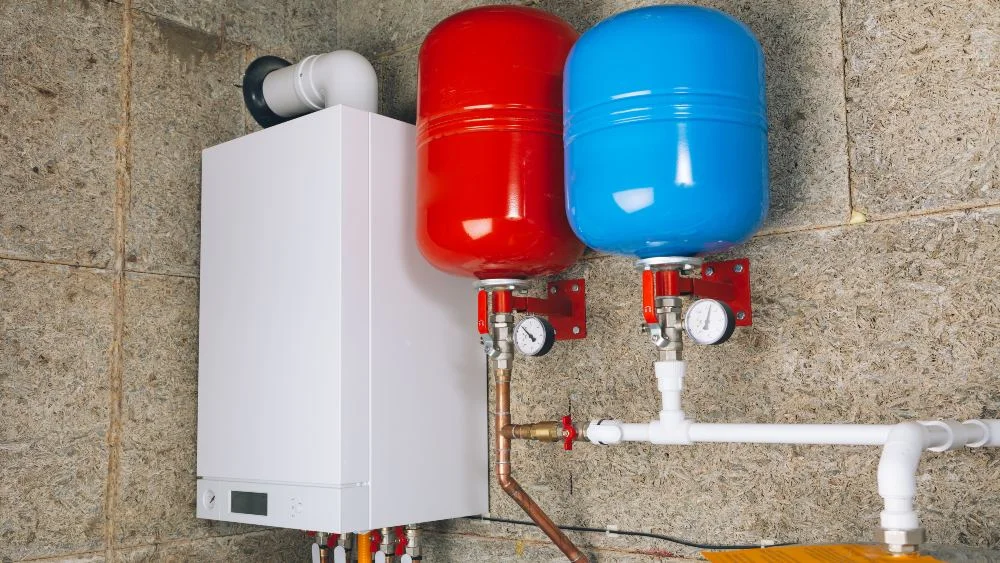
A boiler, in contrast to a furnace, generates heat by heating water. It uses a heating source like gas, oil, electricity, or wood pellets to heat the water inside the system.
The hot water or steam is then circulated through a network of pipes to the radiator units around your home. There are also multiple kinds of radiators: baseboard radiators, cast-iron radiators, radiant walls, and radiant floor heating systems.
There are two main types of boilers:
- Steam boilers: These boilers circulate steam instead of water to the radiators.
- Modern boilers: These boilers circulate hot water to the radiators.
| Pros | Cons |
|
|
|
|
|
|
|
|
Furnace vs. Boiler: Main Differences
To settle your furnace vs boiler debate, you should consider the following aspects before choosing a heating system for your home.
Ease of Installation – Furnace
Both these heating systems require professional installation. The process also involves testing the system after it has been installed. If you are replacing your system, the old unit will also be removed.
- Furnace: It is generally simpler to install than a boiler, and the whole process can be completed in one day. However, keep in mind if you are installing a furnace in a home with no ductwork, then you will have to invest in installing the ducts and vents first, which will take more time.
- Boilers: Setting up a boiler system involves installing pipes, connecting to gas or oil sources, and sometimes removing sections of walls or floors for radiator panel installation. This process requires considerable time, expertise, and experience.
Related: Radiant Heat Vs. Forced Air – Which Is the Better Option?
Fuel Source – Tie
- Furnace: There are many different types of furnaces in the market. You can choose one depending on your requirements. Gas furnaces are the most common and cost-effective option, offering efficiency and lower operating costs, especially in urban areas. Oil furnaces, while less efficient and requiring more maintenance, are an alternative where natural gas isn’t available. Electric furnaces are quite efficient but can be costly to run, making them ideal for regions without access to gas or oil.
- Boilers: It uses various fuels to suit different needs and locations. Natural gas is the most efficient and cost-effective choice where available, while oil boilers serve as an alternative in remote areas, though less efficient. Electric boilers are nearly 100% efficient but depend on electricity costs for affordability. Biomass boilers, burning renewable materials like wood, offer an eco-friendly option, gaining popularity in regions with abundant biomass resources.
Maintenance – Boiler
- Furnace: It requires more upkeep than boilers. The furnace filters need to be inspected and changed every one to three months. The furnace technician will check over carbon monoxide levels, gas lines, flame sensors, flue pipes, and more. Plus, the ductwork also requires occasional cleaning. The average cost for furnace cleaning is roughly $150.
- Boilers: Its simple design has fewer moving parts, so it undergoes less wear and tear. Apart from the annual HVAC tune-up sessions, boiler maintenance is minimal. You should check for water leaks monthly. In addition, call a professional at least twice a year to flush the boiler and lubricate the pumps.
Ease of Repair – Furnace
- Furnace: It is easier to repair a furnace than a boiler. You can even do DIY repairs like resetting the circuit board or installing a new safety switch. However, for more complicated repairs that require extensive knowledge and delicate handling of the components, it is better to call a professional. This may cost you around $130-$500.
- Boilers: These systems have complex parts, so you cannot do DIY repairs. In fact, you will most likely have to call a professional to handle issues like leaks, temperature problems, and more. In case of damage, the average boiler repair cost is $391.
Energy Efficiency – Boiler
The AFUE (Annual Fuel Utilization Efficiency) ratings measure how well your heating system utilizes fuel to produce heat during the year.
- Furnace: They use air to transfer heat which can lose more energy during distribution. If the ductwork has leaks, it can result in greater heat loss.
- Boilers: They are more efficient than furnaces as they use water to transfer heat, which retains heat more effectively than air. Plus, heat is delivered through radiant systems, which provide consistent, even heating.
Note: If you want to make your heating systems more energy-efficient, you can pair them with Cielo Smart Thermostats for Central HVAC to enjoy an array of energy-efficient features, such as setting weekly schedules, geofencing, energy usage tracking, and much more.
Equip your HVAC system with smart features and achieve the perfect balance between comfort & savings.
Learn more
Affordability – Furnace
- Furnace: The average cost of installing a new furnace is $4700. However, the type, size, and efficiency of a furnace can affect the cost range. A gas furnace costs between $2,800 and $9,500. Electric furnaces can range between $1,800 and $7,300, and oil furnaces range between $4,500 and $8,000.
- Boilers: The average cost to install a boiler is $5907. However, like furnaces, the cost of boilers can also vary depending on type, home size, and brand.
Note: If you’re wondering about boiler vs. furnace monthly costs, you should know that high-efficiency boilers and furnaces have lower monthly operating costs because they can extract more heat from their fuel.
Environmental Impact – Tie
The sustainability of these heating systems mainly depends on their type and manufacturer. Electric models are generally considered more eco-friendly. Choosing high-efficiency versions can also reduce energy consumption and help lower your heating costs.
- Furnace: It uses more fuel to heat the air compared to what boilers use to heat the water.
- Boilers: Since boilers do not use as much fuel as furnaces to heat water, they are a more sustainable option. Heating water requires less time and energy than heating air.
Climate – Boiler
- Furnace: Furnaces are a good choice for warmer climates. You can invest in all-in-one HVAC systems with central AC and furnace to provide cooling/heating throughout the year. However, forced-air systems increase the spread of allergens throughout your home.
Related: Forced Air Heating – How Does It Work?
- Boilers: Because of their consistent heating and quiet operation, boilers are a good option for homes in colder climates. Moreover, if you are especially concerned about the spread of allergens, you should consider installing a boiler. According to Josh Mitchell of airconditionerlab.com, boilers are especially beneficial for homes with poorly insulated walls because the heat stays concentrated in the living space rather than circulating through ducts that may lose warmth.
Appearance – Furnace
- Furnace: They are boxier and more compact. As such, they take up less space.
- Boilers: On the other hand, boilers are much larger, industrial-looking, and take up more space.
Lifespan – Furnace
- Furnace: If properly maintained, furnaces can last 15 to 20 years. Electric ones have a longer lifespan and last about 20 to 30 years. However, by the end of their lifespan, you may notice signs like loud rattling, inconsistent heating, and even a rise in the carbon monoxide levels in your home.
- Boilers: If proper maintenance is met, boilers can last 10-25 years. Watch for general wear and tear, like water leaks, odd noises, or longer heat times. These might be signs that your boiler is getting older, and you may need to upgrade.
Boiler vs. Furnace: Which is Better for Your Home?
In deciding between a furnace vs. boiler, consider your specific heating needs, energy efficiency goals, and the layout of your home. Boilers provide steady, even heat through radiant systems, with greater efficiency and no airborne dust. Furnaces, on the other hand, deliver faster heating, which may be more economical upfront and better suited to homes needing quick warmth. Both options have pros and cons, so it’s essential to evaluate installation costs, maintenance needs, and your personal comfort preferences to decide the best fit for your home.
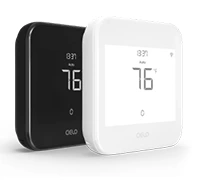
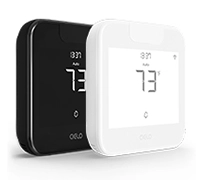
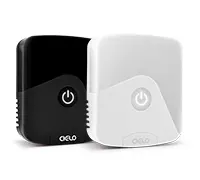
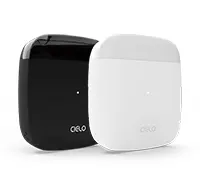
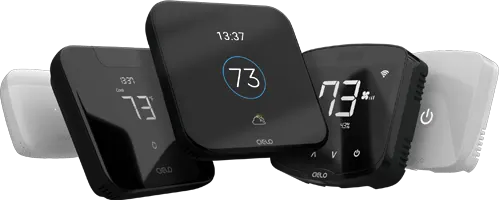
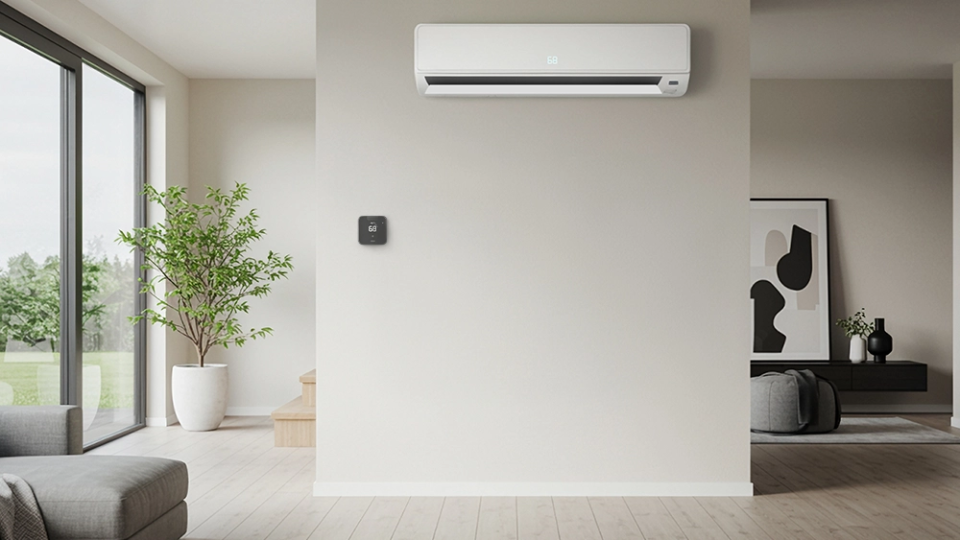

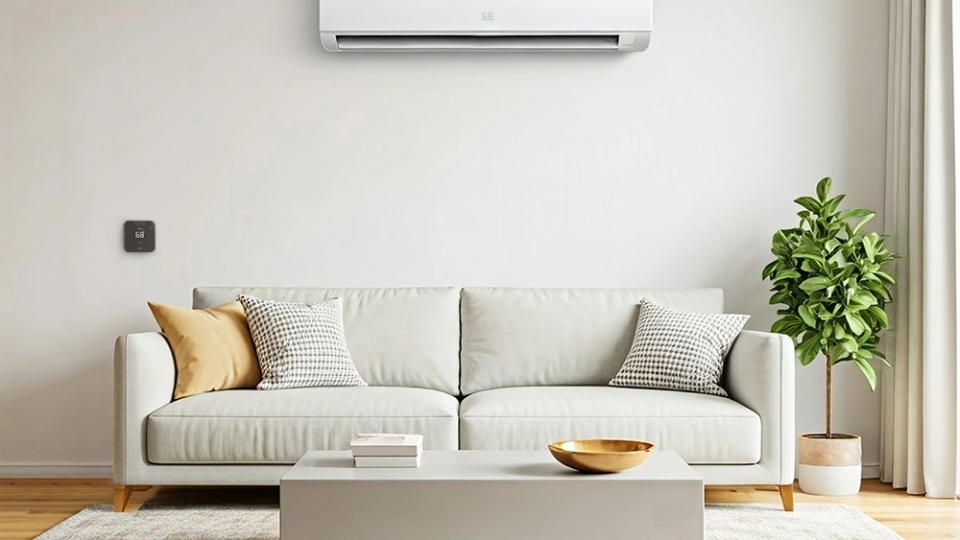

1 Comment. Leave new
This is a very clear and informative comparison. I appreciate how it explains the differences between furnaces and boilers, including efficiency, operation, and ideal home setups. A great resource for homeowners trying to make an informed decision about their heating system.